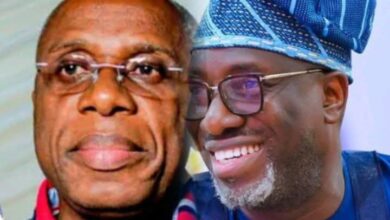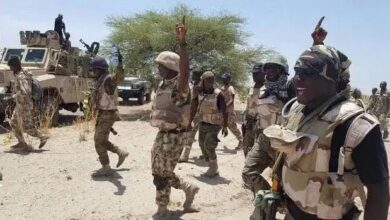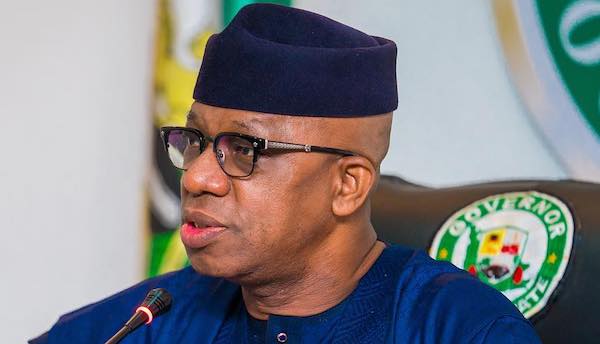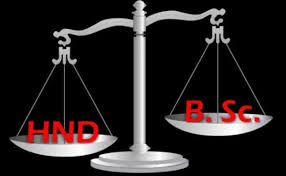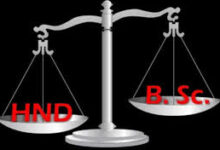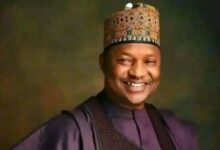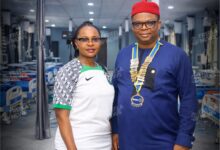NNAMDI KANU: Buhari finally speaks on Igbo leaders’ demand, says, ‘We cannot release him’
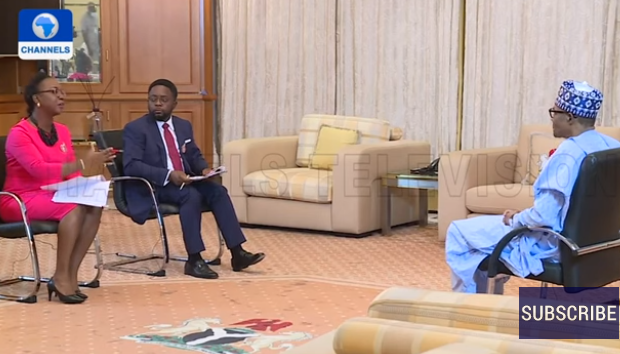
*Says he should defend himself in court
*Let him account for what he has been doing – PMB
*I will sign electoral bill if NASS Includes consensus candidates, indirect primaries – Buhari
*2023: Why I won’t name my successor now – President
*Speaks on resolving herders/farmers conflicts
*Rules out state police
By OUR REPORTER
President Muhammadu Buhari has ruled out the option of pardoning the leader of the proscribed Indigenous People of Biafra (IPOB), Nnamdi Kanu.
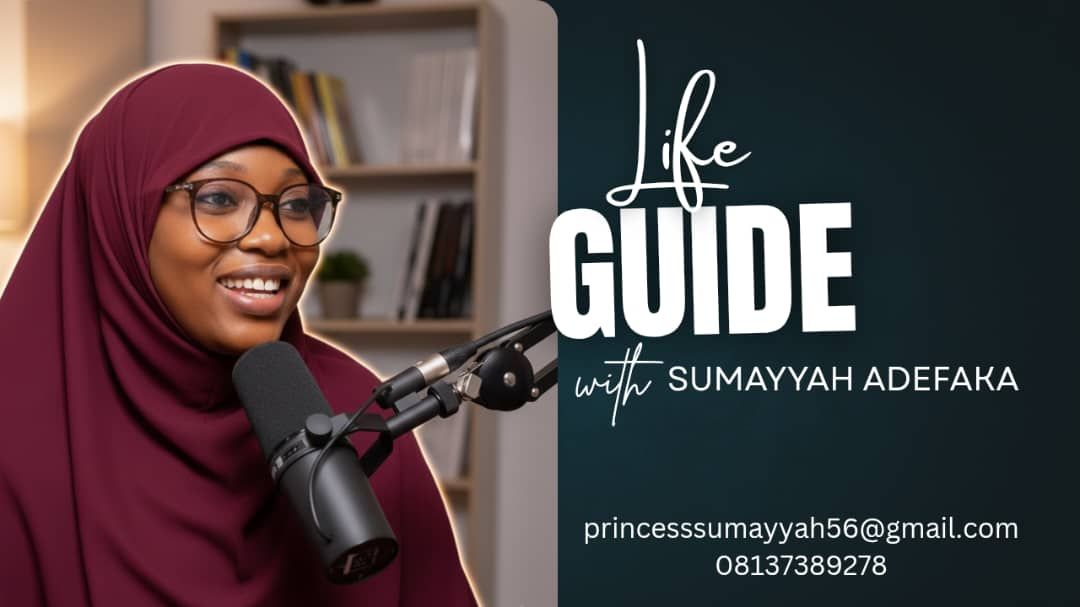
Although he acknowledges the possibility of a political resolution, he believes the IPOB leader must answer for his actions over the years, especially while he was out of the country.
The President made the disclosure in an exclusive interview with Channels Television’s Maupe Ogun and Seun Okinbaloye, which aired on Wednesday.
“Nigerians know that I don’t interfere with the judiciary,” the President told Channels Television in an exclusive interview that aired on Wednesday.
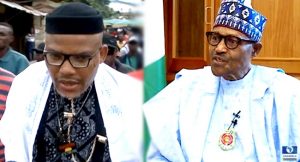
He said, “Let him be listened to. For those who are saying that we should release him, no we cannot release him.
“There is a possibility of political solution; if people behave themselves, all well and good, but you can’t go to a foreign country and keep on sending incorrect economic and security problem against your country and thinking that you will never have to account for what you have been doing. Let him account for what he has been doing.”
In November last year, President Buhari had promised to consider the request of some leaders from the South East region to release Kanu who is facing treason charges preferred against him by the Nigerian Government.
Although he told the Igbo leaders under the aegis of Highly Respected Igbo Greats that they had made an extremely difficult demand, he insisted that the best thing was to subject the IPOB leader to the judicial system.
In his interview with Channels Television, the President doubted if Kanu was willing to return to the country to clear his name from the allegations against him after he fled in 2017.
“There is one institution that I wouldn’t dare interfere with – that is the judiciary,” he said. “Kanu’s case is with the judiciary, but what I wonder is when Kanu was safely in Europe abusing this administration and mentioning too many things, I never thought really he wants to voluntarily come and defend himself on the accusations.
“So, we are giving him an opportunity to defend himself in our system, not to be abusing us from Europe as if he was not a Nigerian. Let him come here to us and then criticise us here.”
On improved security
Apart from the trial of the IPOB leader, the President also spoke about a number of burning issues including security, economy, and politics, among others.
He began his interview with an assessment of his administration’s performance since he assumed office in 2015, especially in the three key areas of security, improving the economy, and fighting corruption.
“For Nigerians to be fair with this administration is to try and find out from the time we won the election in 2015 till now, in the three promises we made – improving security, improving the economy, and trying to fight corruption; securing the country in the North East, if you ask anybody from Borno State, from Yobe State, from Adamawa State, there are a number of local governments – about 18 – that were in the hands of Boko Haram, no local government now is strictly in the hands of Boko Haram or ISWAP. So, in that respect, we have done something,” President Buhari asserted.
“In the economy, don’t forget and I challenge so many people to go and check with the central bank or NNPC. The production from 1999 to 2014 was 2.1 million barrels per day. When we came, somehow the militants were unleashed in the South South.
“Production went down to half a million barrels per day, and coincidentally, the price again collapsed to about $37 per barrel. But look at what we did within the time frame and the resources available to us relative to the government we inherited.”
Despite the gains made so far in improving the economy, the President is not happy with the present state of power because no country can develop without infrastructure, and infrastructure, for him, means road, rail, and power.
He, however, gave an assurance that his administration was working hard to bridge the gap, although the privatisation of the sector was another problem to worry about.
Chinese loans
President Buhari lamented that the owners of the distribution companies bought them based on geo-political zones rather than merit, stressing that removing a system and reintroducing one was no joke.
He went on to defend his government’s decision to source loans from China, saying anyone willing to help Nigeria’s infrastructure was welcome.
“We take that (loans) where it is necessary … we got the Chinese to help us in the rail and the roads, how can we turn that down? If we had turned that down maybe between Lagos to Ibadan, you will have to walk,” the President said.
“So, the Chinese are welcome, anybody that is prepared to come and help us and our infrastructure to do the roads, the rail, and power will be welcomed.”
In the area of education, President Buhari told Nigerian youths to use their exposure to improve themselves and not see them as tickets to depend on the government.
He said, “I wish when they go to school when they work hard when they earn their degree; they don’t do it thinking that government must give them jobs. You get educated because an educated person is certainly better than an uneducated person, even in identifying personal problems.
“So, education is not just meant to hang on to the government to give you jobs and then what the colonialists indoctrinated in us to believe – have a car, have a house, start work by 8:00 am, and close by 2 pm.”
The President also shared his political view where he said he was ready to sign the Electoral Act Amendment Bill, if the National Assembly would include the options of consensus candidate and indirect primary to the mode of selecting a candidate for an election, as against the initial direct mode as the only option to conduct primaries by political parties.
Asked if he will sign the bill if the lawmakers effect the change in that direction, he affirmed, “Yes, I will! I will sign.
“There should be options, you can’t dictate to people and say you are doing democracy. Give them other options so they can make a choice.”
Electoral Bill
President Muhammadu Buhari stated his readiness to sign the Electoral Act Amendment Bill after the National Assembly makes the necessary adjustments.
He, however, said such changes must include the addition of consensus candidates, indirect primary options to the mode of selecting a candidate for an election, as against the initial direct mode as the only option to conduct primaries by political parties.
“All I said (is that) there should be options,” he said. “We must not insist that it has to be direct; it should be consensus and indirect.”
Asked if he would sign if the lawmakers effect the changes in that direction, he affirmed, “Yes, I will! I will sign.
“There should be options, you can’t dictate to people and say you are doing democracy. Give them other options so they can make a choice.”
Why PDP lost
President Buhari had withheld his assent to the bill, citing the cost of conducting direct primary elections, security challenges, and possible manipulation of electoral processes by political actors as part of the reasons for his decision.
In their reaction, lawmakers in the House of Representatives could not immediately take an action but they said they would adequately address the matter in January.
During a plenary in December, Speaker of the House, Femi Gbajabiamila, had explained that the time was short to address such a sensitive issue.
At the upper chamber, the Senate also resolved to consult with the House of Representatives in January when both chambers would be in session.
While the lawmakers have yet to resume from recess or deliberate on the bill, President Buhari said it was wrong to force an option on the people.
Stressing the importance of allowing people to choose from available options, he relived the events that led to his election into office and ended the 16 years rule of the Peoples Democratic Party (PDP) in 2015.
“Personally, I do not support direct primary because I want people to be given a choice,” the President stated.
He said, “You can’t give them one option and think that you are being democratic. Let them have three options – there is the consensus.
“PDP was so overconfident that they thought they would rule Nigeria till the end of time, but the opposition (parties) came together, and we overthrew them. Not as a result of direct primary, it is as a result of opposition parties coming together and fighting the PDP.
“It is because we agreed to come together. The fact that we came together gave us the success we had, and that was the mistake they made; that is why they lost.”
On his successor plan
President Buhari was asked about his successor plan as to whether he has a favourite candidate to take over from him in 2023 and he said, “I won’t tell you … because, if I tell you, he may be eliminated before then.
Resolving herders/farmers conflicts
President Muhammadu Buhari said he sent back two sitting governors who visited him in Aso Villa to complain about the frequent clashes between herders and farmers within their individual domains.
Buhari said he sent the two governors back to their states to meet with their traditional leaders.
According to the President, herders and farmers had been co-existing for decades without rancour or conflict. So, he sent the governors back to go ask the local leaders in their communities what went wrong and what caused the breakdown in communication between the herders and the farmers.
He said, “The role of traditional rulers must not be undermined because in their areas they know who is who. So, we have to revert to that system for us to have effective security in the localities.
“For example, there were two governors that came to see me and I don’t mind saying that the governor of Oyo State and one other state.
“The herders were in their forests but were going into the neigbouring farms and eating (up) the crop. I said as far as I know, the farmers and the herders have been co-existing in Nigeria, let them go and ask the local leadership what has gone wrong, why the break in communication between the local leadership and the herders which come on seasonal bases? The routes they follow, the forest they confined themselves to, why are they now extending to the farms of people? I just sent them back.”
Rules out state police
In the interview with Channels TV, President Muhammadu Buhari rejected the institution of state police in the country.
This comes amid calls for state policing to tackle insecurities in the nation, as the current policing system was under the Federal Government.
The President insisted that state police is not an option, adding that more attention should be paid to the relationship between local government and state Governors.
Buhari said, “State police is not an option. Find out the relationship between local government and the Governors. Are the third tier of government getting what they are supposed to get constitutionally? Are they getting it? Let the people in local government tell you the truth, the fight is between local governments and the Governor.”
The President further added that the roles of traditional rulers in the country should not be undermined in bringing peace to communities.
“The role of traditional rulers must not be undermined, because in their areas they know who is who, even by families, not to even talk of individuals,” he said.
This is not the first time that the President had rejected state policing despite calls from the state governors.
As far back as 2019, the President had noted that though state policing was a good initiative, the governors may be unable to pay the officers’ salaries.
There has been an increased call for state policing, especially following the recent drama between the Governor of Lagos State, Babajide Sanwo-Olu, and a police officer who publicly defied the Governor’s orders.


